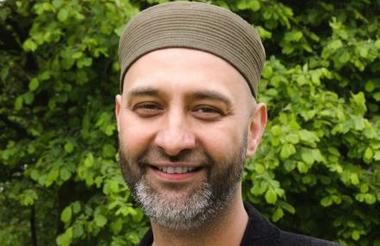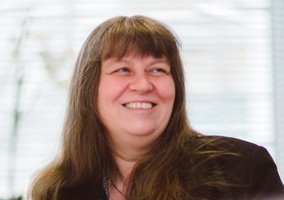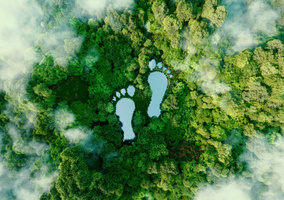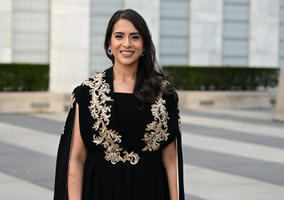Kamran Shezad, executive director of Bahu Trust, wears many hats to tackle climate change. But more than addressing environmental issues from a scientific perspective, he also considers them from a faith perspective.
It all began at the age of seven when Shezad started going to Bahu Trust’s central mosque in Birmingham. As he grew up in the mosque over the years, he always suggested community initiatives to the charity’s management.
It was not long before the trust set up the Islamic Help charity in 2003 to support vulnerable communities around the world.
Shezad first joined Islamic Help as a volunteer and as the charity got bigger, he was hired to be the overseas programme director where he travelled abroad and helped deliver the charity’s services.
The charity spent money to build water wells and schools among other projects in countries like Pakistan, Bangladesh, Jordan and Tanzania and Shezad says that was the start of his environmental journey.
“I began to see with my own eyes the role that the natural environment plays in sustaining lives,” he says.
“When they started telling us the benefits that nature brings to them, the benefits that trees, the benefits that birds and the benefits that bees bring to them and how they may be poor in terms of material wealth, but spiritually, they felt wealthy because they always were surrounded by God's manifestation and his blessings and bounties, and that's what kept them grounded.
“I'd never really thought of it like that. So that helped me connect faith and nature for the first time. I fell in love with that concept.
“You can build as many water wells as you like, but if the water in the ground is drying up, or if there’s mass deforestation taking place, then our money is being wasted.”
He then decided to leave the charity and go back to school as he felt he needed to learn more to address environmental and climate issues.
Despite leaving school with most of his GCSE grades below C, he managed to convince Birmingham City University to give him a spot in its environmental sustainability master’s programme as he could bring his work experience in Africa and South Asia.
Shezad says one of the things he has learnt since is how to make environmental issues more attractive to people while also making them doable.
“If we want to tell people not to eat meat, we don't say: ‘It's bad for the climate, you need to reduce your carbon footprint.’”
Instead, Shezad says it is more effective to let people know the health benefits of eating less meat.
“If you empower people to do the right thing, it has more impact. It's just being a part of somebody's journey and helping them do their bit, rather than making them part of the wider issue.”
‘I call it my eco jihad’
After his master’s, Shezad did environmental and climate consultancy work for various charities. One of these was Footsteps, a grassroots faith networking organisation that aims to bring faith groups together on climate issues.
He then joined Joseph Rowntree Charitable Trust (JRCT) as a co-optee in 2017, which he says presented a new learning aspect for him.
“I’m from a deprived area of Birmingham, and I’m sitting with tables of experts in their field. But they trusted me to bring a different angle. So, during that period, I felt that JRCT nurtured me too.”
Shezad, who currently serves as co-chair of JRCT’s sustainable future committee, says he learnt a lot as he and other assessors at the trust scrutinised each other’s positions on applications and discovered what worked and what did not.
He was then offered the executive director role at Bahu Trust, which he accepted, and started doing more initiatives around environmental behaviour change like encouraging people to avoid plastic and driving to their mosque and introduced new waste management programmes.
But he found that it was not easy to implement such initiatives because of systemic issues like public transport not being reliable or affordable. So, Bahu Trust contacted Birmingham City Council for support.
Internationally, Shezad also sits on the multi-faith advisory council to the United Nations’ interagency task force on religion and sustainable development.
Previously, he also served on the Civil Society and Youth Advisory Council to the presidency of COP26, the 26th UN Climate Change Conference in Glasgow in 2021.
“You see me everywhere because the same message needs to be told in different places,” he says.
“It’s become, as I call it, my eco jihad to try to fight for climate justice because that comes in different forms, whether it’s air pollution, access to good quality food, access to transportation or fuel or energy justice.”
Integrating faith with climate
The Bahu Trust operates a network of 22 mosques around the country and has converted 18 of them to run on solar power. It is also retrofitting mosques for better insulation to further reduce energy usage.
It has developed a list of faith-based resources for Muslim communities to inspire climate-friendly and environmental behaviour.
The charity’s headquarters, based in Balsall Heath, Birmingham, is also working with the council to make it and the city become net-zero carbon by 2030.
For its environmental and climate action efforts, Bahu Trust has obtained accreditation from the UN Environment Assembly.
For a faith charity, Bahu Trust has done some advanced work on environmental issues, Shezad says.
“We use faith teaching sometimes to kick our own communities’ backside and say: ‘You have a responsibility to do this because it's an act of worship for you to get up and volunteer your time. It's an act of worship for you to take climate action. It's an act of worship for you to tackle air pollution.’”
Despite being a Muslim charity, Shezad says the trust’s environmental work is aimed at people of all different faiths.
“We have people from all walks of life. The churches trust us, the gurdwaras trust us and the community organisations trust us. And that's quite important because we bring people to the table, not just an ideology.”
More than a place of worship
Bahu Trust has changed “significantly” over the past 20 years, says Shezad.
It has become a place of communal gathering and, when recessions and austerity measures hit, turned into a place that offers support.
“When youth centres were being closed down, when benefits were being cut, when prices were going up, faith places put on places where young people can have youth clubs.
“They've put on food and warm places so people who can't afford to switch on their heating for a few hours could come.”
But as a charity, there is not a lot of funding for this type of work, he says, with many staff members working unsociable hours.
“If somebody wants to use the food bank, the staff will come in at eight to nine o'clock in the evening to help that person.”
And whenever the charity applies for funding to foundations, there are often restrictions set by foundations not to fund organisations that promote religions, he says.
There are doubts about whether a mosque is the best place to work on climate action or community initiatives, he says, but foundations should be open to having that discussion rather than shutting it down.
“It's demoralising. Every time you work ages on application forms, then it gets turned down and you don't get any proper feedback and then you have to wait each year.”
Grantmakers should keep an open mind when evaluating applications from faith charities, he says.
“Places of worship have evolved significantly and are at the forefront of tackling all the inequalities that disadvantaged communities are having to go through.
“Keep your criteria a little bit vague and let them convince you in the application.
“If you've already decided on the criteria, that means the criteria are going to convince you, not the community. But if you open it up and give me the opportunity to convince you that this is how I'm doing collaboration, not the way you want me to do it.”
Related Articles












